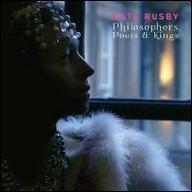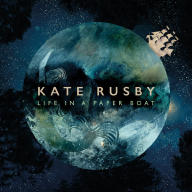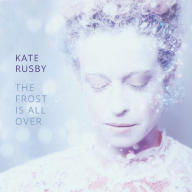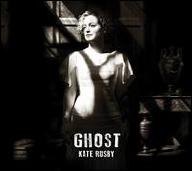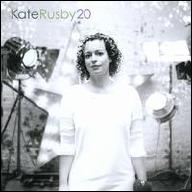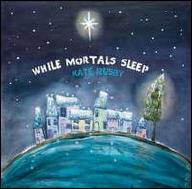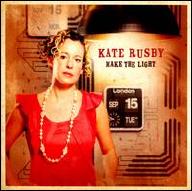Born and raised in Barnsley, South Yorkshire, Rusby grew up in a musical family; her parents had a ceilidh dance band and introduced her to British folk at an early age. Along with her sister, Emma, Rusby joined the band, singing backup and playing the fiddle. By the time she was 12, she had also begun to sing lead and play the guitar. At 15, Rusby debuted at the Holmfirth Festival, and was introduced to another young folk singer, Kathryn Roberts; after playing together live for a while, the duo recorded Kate Rusby Kathryn Roberts, which won Folk Roots' 1995 Album of the Year award. Around that same time, she and Roberts joined the Lakeman Brothers to form the short-lived but influential folk-rock group Equation. She was also for a time a member of the all-female Celtic ensemble the Poozies, appearing on their 1997 album Come Raise Your Head and 1998's Infinite Blue.
Striking out on her own, Rusby made her solo debut with 1997's Hourglass, which was produced by Scottish musician and Battlefield Band member John McCusker. Released two years later, it was her second solo album, Sleepless, that proved to be Rusby's breakthrough. Not only was it nominated for Britain's prestigious Mercury Prize, but it won her a pair of BBC Radio 2 Folk Awards for Best Album and Folk Singer of the Year.
Cementing Rusby's status at the forefront of the folk scene, her third album, Little Lights, appeared in early 2001, around which time Rusby and McCusker were married. To celebrate ten years of recording music, she released 10, a collection of re-recorded and new tunes, as well as a handful of live cuts in 2002, followed by the acclaimed Underneath the Stars in 2004. The following year, The Girl Who Couldn't Fly marked the end of both her working and romantic relationship with McCusker as the couple divorced not long afterward. While he did perform on Rusby's next release, it was the first of her solo albums to be self-produced.
Released in 2007, Awkward Annie also proved to be a success, reaching number two on the U.K. indie chart. Following the December 2008 release of her first Christmas album, Sweet Bells, Rusby gave birth to her first child with her second husband, Irish musician Damien O'Kane, and subsequently took a brief break from the music industry. Creatively rejuvenated, her subsequent return to the studio yielded the thoughtful Make the Light, her first album to consist entirely of Rusby’s own compositions. Released at the end of 2010, it was followed one year later by another seasonal album, While Mortals Sleep.
As with her 2002 collection, Rusby celebrated another milestone with 2012's 20, a double album's worth of reinterpretations of previous songs that featured collaborations with artists such as Paul Weller, Eddi Reader, and Mary Chapin Carpenter. Taking time out after the birth of her second child, Rusby returned two years later with 2014's Ghost, which fell comfortably into her long-standing format of originals, traditional songs, and a few covers. The following year, she added to her seasonal album tally with her third Christmas-themed release, The Frost Is All Over. Subtle synthesizers and drum loops marked a sonic departure for Rusby on her 2016 long-player Life in a Paper Boat. She ended the decade with the more traditionally minded Philosophers, Poets Kings as well her fourth Christmas outing, Holly Head, then returned in 2020 with Hand Me Down, a home-recorded set of pop and rock covers that ranged from Taylor Swift to the Cure and Bob Marley. ~ Timothy Monger & Heather Phares, Rovi


